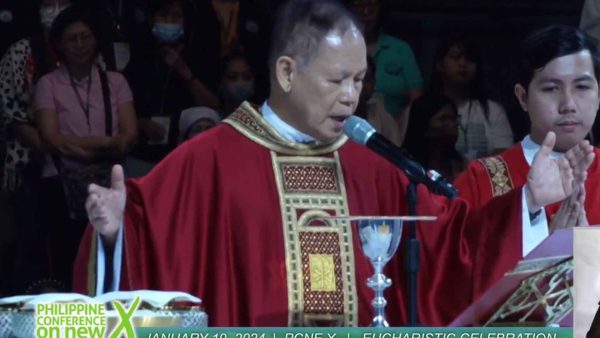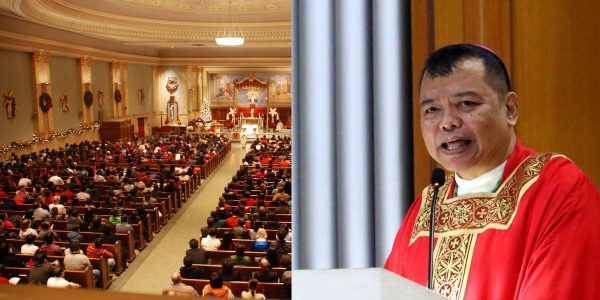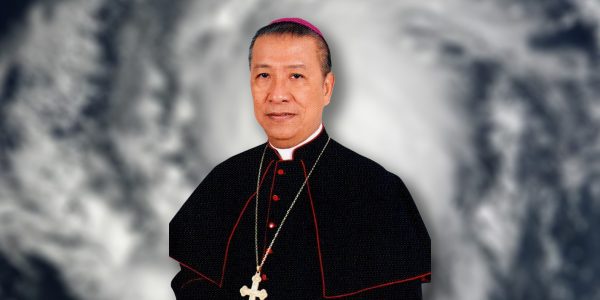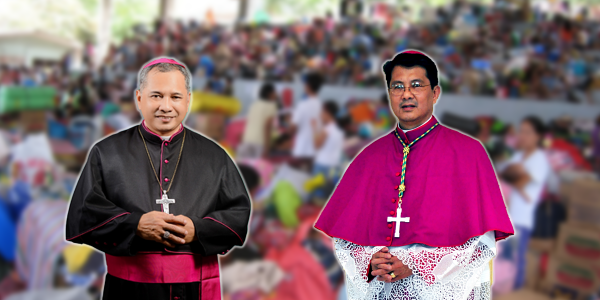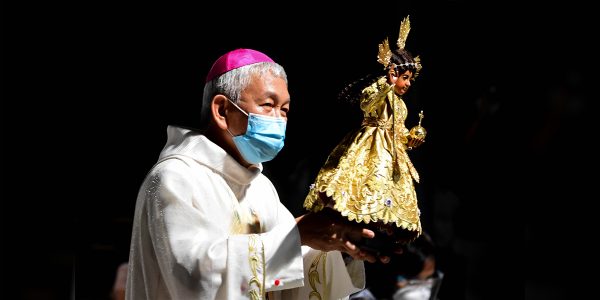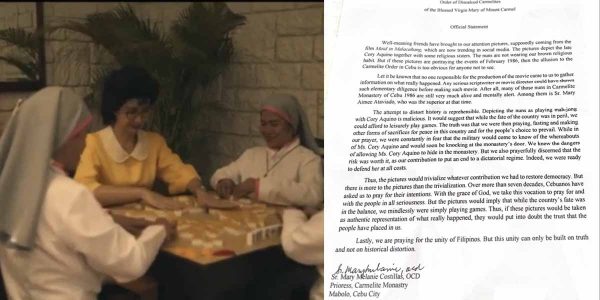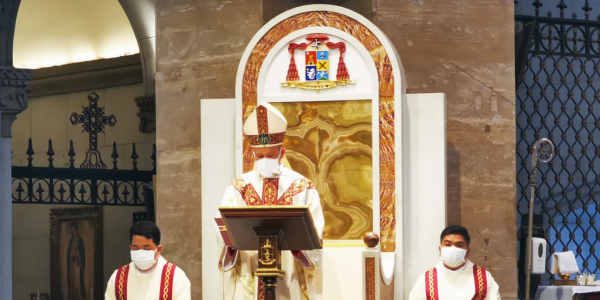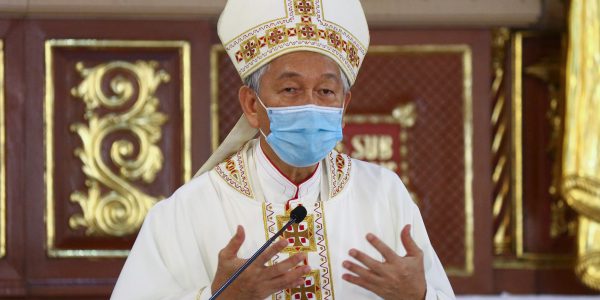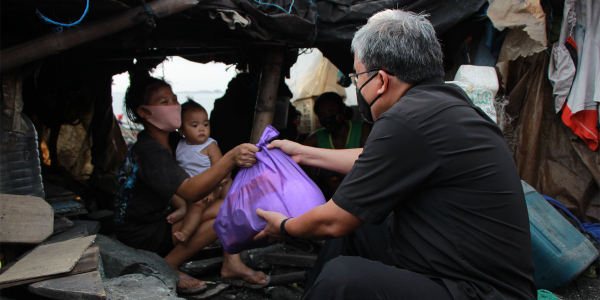201 total views
In an astounding move, Pope Francis has extended indefinitely the faculty given to all priests to absolve from the sin of abortion. As it marked the end of the Extraordinary Jubilee of Mercy, the Vatican released on November 20 an Apostolic Letter entitled Misecordia et Misera which contains among others the Pope’s explicit permission for all priests to give absolution, beyond the year of mercy, to the sin of abortion which is otherwise reserved to the Bishop.
Not too many perhaps understand the importance of the Pope’s declaration, but it practically means enhanced accessibility to God’s mercy and an easier path towards reconciliation especially since the sin of abortion in the Code of Canon Law incurs the penalty latae sententiae excommunication. (Canon 1398)
Ordinarily, absolution from abortion is reserved to the Bishop. This doesn’t mean though that a penitent may not confess to a priest. There are priests who are actually given by their bishops the faculty to absolve from this sin either for a determined period of time (for example the duration of the Lenten season) or for a specific number of cases. It becomes a little bit complicated though when a penitent confesses to a priest not possessing this faculty. The priest will have to advise the penitent to confess either to a bishop or to another priest with that faculty.
Compounding the issue further is the fact that a person who is guilty of abortion is automatically (latae sententiae) excommunicated. Meaning, the person does not need to be told, through a formal decree (an official notice), that he/she is being sanctioned. The penalty is in effect the moment the fault (sin) is committed. If a declaration is made by the Church, this is simply to confirm the fact that an excommunication has taken place.
An excommunication is the most severe form of punishment (sanction) that can be incurred by any member of the Catholic Church. As long as the individual is excommunicated, he/she is forbidden to have any ministerial part in the celebration of the Eucharist or in any other ceremonies of public worship; he/she is prevented from celebrating and receiving the Sacraments and sacramental; and he/she is prohibited from exercising any ecclesiastical offices, ministries, functions or acts of governance. (Canon 1331 §1, 1˚, 2˚, 3˚)
Under these circumstances, what the penitent actually needs is to be absolved from the sin itself and for the incurred penalty of excommunication to be remitted. Imagine the trouble and disappointment these create in the penitent upon realizing that his/her sin is apparently not easy to forgive despite his/her deep sorrow for it and the continuous counsel and assurance from the church that God is merciful and forgiving no matter how grave the sin is.
Although the Code of Canon Law has remedy for such situations like allowing the priest-confessor to give absolution, the lifting, however, of the censure and the absolution done by him are merely temporary and the penitent is hereby directed within one month to have recourse to a bishop or to a priest with the requisite faculty to absolve, otherwise, he/she re-incurs the penalty of excommunication if he/she fails to do it. It is to be noted that the recourse to the bishop may be done through the priest-confessor himself without the name and identity of the penitent being revealed. (cf. Canon 1357 §1, §2)
From the inside looking in, it would appear that Church laws on this are not only complicated but are also not charitable enough to let the spirit of forgiveness and reconciliation be earnestly experienced.
It must be understood though that the canonical provisions with respect to abortion are formulated as such in order to underscore the gravity of the offense and that penitents should not treat it as yet another ordinary wrongdoing. Also, they are perhaps aimed at dissuading people from committing it since recourse to absolution and the remission of the penalty are quite difficult to achieve.
By extending the faculty of all priests, Pope Francis is not undermining church law but is in fact reinforcing it. He said, “I wish to restate as firmly as I can that abortion is a grave sin, since it puts an end to an innocent life. In the same way, however, I can and must state that there is no sin that God’s mercy cannot reach and wipe away when it finds a repentant heart seeking to be reconciled with the Father.” (Misericordia et Misera no. 12)
Sensing perhaps the widespread cases of abortion, the Pope has seen the need to address it firmly through the sacrament of reconciliation that easily grants absolution and the remission of the penalty incurred. He declared, “Lest any obstacle arise between the request for reconciliation and God’s forgiveness, I henceforth grant to all priests, in virtue of their ministry, the faculty to absolve those who have committed the sin of procured abortion.” (Misericordia et Misera no. 12)
And since the persons who recommended, supported or were involved in procuring abortion are also guilty of the sin and have also been excommunicated, Abp. Rino Fisichella, President of the Pontifical Council for New Evangelization, clarified, “The sin of abortion is inclusive. Thus forgiveness for the sin of abortion is all-inclusive and extends to all those who are participants in this sin.”
Pope Francis’ emphasis on mercy has done a lot of good to the church. His mercy is not an empty slogan but a way of life he wants the church to consistently embrace. His latest act on mercy addresses an issue that is somehow both canonically and theologically complicated. He simplifies it though, and now abortion is understood clearly as a grave sin but one that is definitely forgivable.











